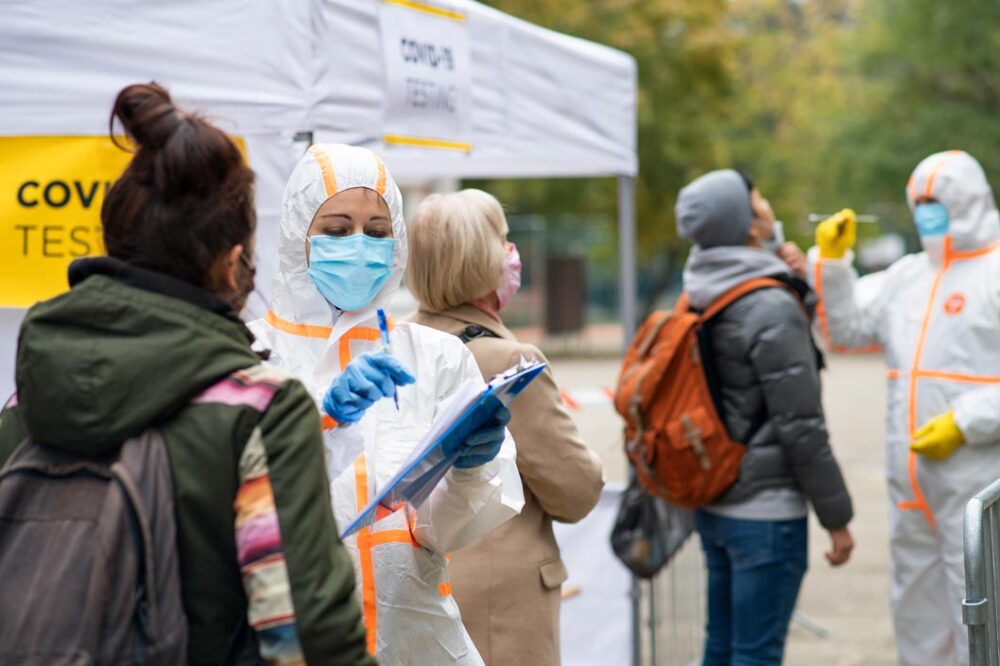Advertisment
COVID-19: Lessons learned at the 5-year mark

As New York City marks five years since the first confirmed case of COVID-19, the NYC Preparedness & Recovery Institute (PRI) is reflecting on the city’s response to the COVID-19 public health emergency and pandemic. A newly published article, COVID-19, Five Years Later: What We’re Learning About NYC’s Societal Response to Emergencies, outlines interim insights from PRI’s ongoing COVID-19 Review, which draws from hundreds of reports, interviews, and community discussions to assess the city’s response and identify strategies to strengthen emergency preparedness moving forward.
Launched in 2022, PRI is a resource that advances preparedness, builds resilience, and promotes public health throughout the five boroughs of NYC and around the globe.
Key report findings on the role of mutual aid networks in emergency response include:
- Strengthening protections for essential workers
- Rebuilding public trust in health authorities
- Combating misinformation and addressing health inequities
- Economic resilience strategies for small businesses and marginalized communities
- The need for ongoing, sustained public health funding
- Preventing prejudice and discrimination during public health crises
PRI faculty experts available for interviews:
- Sandra Albrecht, PhD, Asst. Prof., Epidemiology, Columbia University; PRI Communications Team Faculty Member – Expert in social epidemiology, socio-cultural and environmental factors influencing diseases in immigrant and Latino populations.
- Jasmine McDonald, PhD, Assoc. Prof., Epidemiology, Columbia University; PRI Racial Equity and Social Determinants of Health Co-Lead – Expert in molecular epidemiology, breast cancer etiology, and health disparities.
- Brian Pavilonis, PhD, Assoc. Prof., Environmental, Occupational, and Geospatial Health Sciences, CUNY SPH; PRI Workforce Capacity and Preparedness Faculty Co-Lead – Expert in occupational health, exposure science, and industrial hygiene.
- Rachael Piltch-Loeb, PhD, Asst. Prof., Environmental, Occupational, and Geospatial Health Sciences, CUNY SPH; PRI Workforce Capacity and Preparedness Co-Lead – Expert in public health emergency preparedness, response evaluation, and risk communication.
- Scott Ratzan, MD, MPA, Distinguished Lecturer, Community Health and Social Sciences, CUNY SPH; PRI Communications Co-Lead – Expert in health communication, health literacy, and strategic diplomacy.
- Jeffrey Shaman, PhD, Prof., Environmental Health Sciences, Columbia University; Interim Dean, Climate School; PRI Epidemiology and Modeling Co-Lead – Expert in infectious disease transmission, environmental determinants, and disease forecasting.
For more information or to arrange interviews, please contact ICAP Communications at icap-communications@cumc.columbia.edu. For more details, visit pri.nyc.
The New York City (NYC) Pandemic Response Institute (PRI) is a resource supporting New York City agencies, organizations, and communities to prepare and respond to critical public health crises
Columbia University Mailman School of Public Health
Founded in 1922, the Columbia University Mailman School of Public Health pursues an agenda of research, education, and service to address the critical and complex public health issues affecting New Yorkers, the nation and the world. The Columbia Mailman School is the third largest recipient of NIH grants among schools of public health. Its nearly 300 multi-disciplinary faculty members work in more than 100 countries around the world, addressing such issues as preventing infectious and chronic diseases, environmental health, maternal and child health, health policy, climate change and health, and public health preparedness. It is a leader in public health education with more than 1,300 graduate students from 55 nations pursuing a variety of master’s and doctoral degree programs. The Columbia Mailman School is also home to numerous world-renowned research centers, including ICAP and the Center for Infection and Immunity. For more information, please visit www.mailman.columbia.edu.





